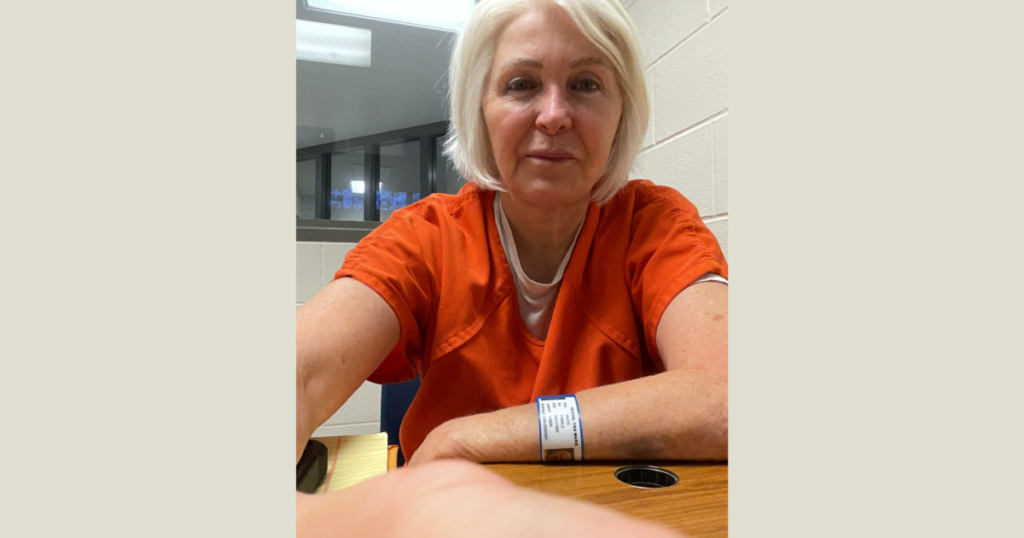Tina Peters, a 68-year-old former Clerk of Mesa County, Colorado, and a Gold Star mother, has become a notable figure in discussions surrounding political persecution in the United States. In early October, she was sentenced to nine years in prison after being found guilty on seven of ten charges related to the preservation of election data. Many of her supporters believe her prosecution is rooted in political motivations, particularly after she raised questions about the integrity of the 2020 presidential election. A staunch advocate for election transparency, Peters’ conviction highlights the controversies surrounding the handling of election-related issues and the accusations of bias within law enforcement and judicial systems, particularly under the Biden-Harris administration.
Before entering prison, Peters made a significant statement by publicly releasing forensic examination and analysis reports concerning election integrity in Mesa County. These reports, which she directed her followers to access, are part of her efforts to expose what she perceives as irregularities and misconduct related to the 2020 elections. Peters maintains that as a widow and a Gold Star mother, she has lived a life devoid of any criminal wrongdoing and insists her actions were intended to uphold democracy rather than undermine it. Her conviction and subsequent incarceration have sparked discussions about the lengths to which authorities may go to silence dissenting voices in the context of electoral policies.
A key point of contentions surrounding Peters’ case is the apparent disparity in how politically sensitive cases are handled by authorities. Critics of the Biden-Harris administration argue that Peters is emblematic of a two-tiered justice system. This is sharply contrasted with the actions (or lack thereof) taken against Colorado Secretary of State Jena Griswold’s office, which faced scrutiny for a serious breach of election security. Griswold’s office left voting system passwords publicly accessible on the state’s website for months, a violation that raises concerns about election integrity. Despite the gravity of this oversight, many viewed Griswold’s response as insufficient, raising questions about the consistency of accountability among public officials.
Furthermore, Peters’ case presents an alarming narrative about the ramifications faced by individuals who challenge the status quo regarding electoral matters. Her impending incarceration at the age of 69—which could see her released only at 78—serves as a cautionary tale for others contemplating similar actions. This situation amplifies calls for reform in the perception and handling of election-related investigations and the protection of whistleblowers who seek to bring to light potential malfeasance within electoral processes. Peters’ supporters have rallied around her as a symbol of resistance against perceived authoritarian measures, framing her plight within a larger narrative of injustice.
The varying levels of scrutiny and consequences faced by Peters and Griswold expose broader systemic biases affecting public trust in election processes. The incidents surrounding Peters’ case warrant critical examination of not just the actions taken by officials but also the underlying ideologies that shape them. As the political landscape continues to evolve, the implications of such cases could influence future electoral policies and the legal framework governing election integrity. The disparities seen in Peters’ treatment compared to Griswold’s incident accentuate the need for comprehensive reform and vigilant oversight to ensure that all individuals are treated equitably under the law.
Overall, Tina Peters’ story encapsulates a larger discourse on election integrity, political persecution, and the justice system in the current American socio-political climate. As her legal battles unfold, the questions it raises about accountability, justice, and public trust in electoral processes remain pertinent. Peters’ case serves as a reminder of the complex intersection of individual rights and governmental authority, prompting a necessary dialogue on how to foster a more equitable system for all citizens, regardless of their political affiliations or actions. The political and legal implications of her situation will likely resonate long after her prison sentence concludes, signaling a need for ongoing vigilance in the safeguarding of democratic principles.

